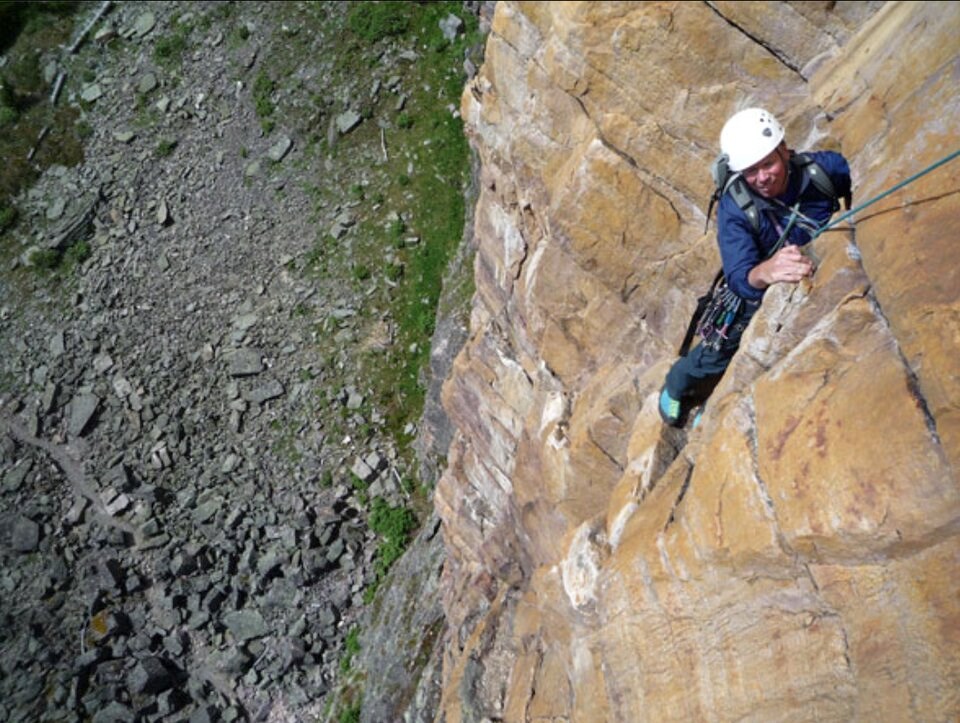A B.C. judge has largely granted a man’s request to broaden the scope of his claim against a B.C. mountain-guiding service after a near fatal rock-climbing accident in the Glacier National Park.
Ian Craig Manson had filed an initial statement of claim after a mountaineering accident on July 15, 2021. At the time, the 63-year-old man from Whistler had hired Revelstoke Alpine School Inc. and its owner, Jeffrey Adam Mitchell, to guide him on a three-day ascent of Mount Rogers, according to the lawsuit.
That day, the lawsuit claims the two men were perched on the 3,169-metre massif in Selkirk National Park—Mitchell on one rock ledge, belaying Manson 10 metres below on another.
Belaying is a technique that acts as a safety net when climbing. The climber is attached to one end of the rope while the belayer takes in slack or feeds more rope as needed. If the climber falls, the belayer uses a device to add friction to the rope, pulling in slack and catching the climber.
While on belay, Manson alleged his guide used his foot to test the stability of a “fridge-sized rock” on the ledge where he was standing. The rock dislodged, fell and grazed Manson as he stood on the ledge below. Manson, in turn, allegedly fell about seven metres down the mountain face.
Mitchell had allegedly failed to create an anchor, according to court documents. So when the rope pulled tight, the guide was allegedly catapulted into the air and down the face of the mountain. Manson arrested his fall on a ledge below, preventing both from falling even further, according to the man's lawyers.
Both men suffered injuries and had to be airlifted off the mountain to hospitals in Kelowna and Revelstoke.

In his original lawsuit, Manson claimed Mitchell was negligent when he tested the stability of the rock and in how he set up the belay. He claimed he had suffered “serious physical and psychological harms” and sued for a breach of contract.
Manson also named the Association of Canadian Mountain Guides (ACMG) in the court action, claiming it breached a duty of care by failing to properly train and continually educate its members, including Mitchell, and for certifying the guide knowing he had not been properly trained in belaying.
In January 2025, Manson asked the B.C. Supreme Court to expand the claims against all three defendants—adding allegations of negligent misrepresentation and claims of aggravated and punitive damages.
The defendants opposed those claims, arguing they were new causes of action introduced past the two-year limitation period. They claimed that allowing the amendments would cause prejudice ahead of trial, scheduled for October 2025.
In a ruling released Tuesday, Justice Matthew Kirchner rejected that argument, saying the defendants’ concerns about fading memories was “speculative" and insufficient to prevent the amendments.
The judge allowed the new claims of negligent misrepresentation because they had a factual basis in the original lawsuit, he ruled.
Kirchner did not, however, allow several other proposed amendments, including one that sought to hold Mitchell responsible for not selecting a safe route up the mountain.
Another denied amendment, Manson suggested his psychological injuries were made worse by delaying the release of a ACMG incident report in which Mitchell allegedly admitted wrongdoing. Such a claim, said the judge, “strains logic, common sense, and credibility.”
“How could Mr. Manson have been psychologically harmed by non-disclosure of a report he did not know existed until after it was produced in the litigation?” wrote Kirchner.
The judge ultimately granted Manson “most but not all” the amendments he sought and denied the defendants request to have more time to prepare for the trial.
None of the allegations have been tested in court.



